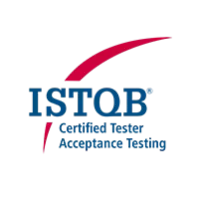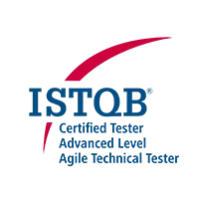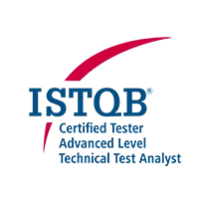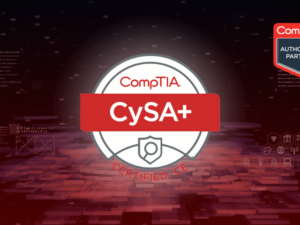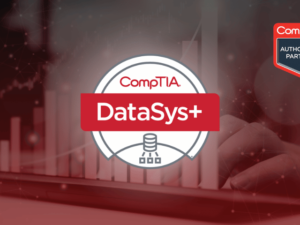CERTIFIED TESTER ADVANCED LEVEL TEST MANAGER (CTAL-TM)
- Description
- Reviews

CERTIFIED TESTER ADVANCED LEVEL TEST MANAGER (CTAL-TM)
COURSE DESCRIPTION
The ISTQB Advanced Level Test Manager (CTAL-TM) certification provides the knowledge and competencies to take responsibility for managing all the testing activities across the software development lifecycle. It covers everything from how to design a suitable test approach for the project based on the organizational test strategy to building a test team or testing
competencies to complete the necessary testing.
TARGET AUDIENCE
The Advanced Level Test Manager certification is aimed at people who have already achieved an advanced point in their careers in software testing and wish to develop further their expertise in test management.
PREREQUISITE
To gain this certification, candidates must hold the Certified Tester Foundation Level certificate and have sufficient practical experience.
COURSE OBJECTIVES
A candidate who has achieved the Certified Tester Advanced Level Test Manager certification should be able to:
• Manage a testing project by implementing the mission, goals and testing processes established for the testing organization
• Organize and lead risk identification and risk analysis sessions and use the results of such sessions for test estimation, planning, monitoring and control
• Create and implement test plans consistent with organizational policies and test strategies
• Continuously monitor and control the test activities to achieve project objectives
• Assess and report relevant and timely test status to project stakeholders
• Identify skills and resource gaps in their test team and participate in sourcing adequate resources
• Identify and plan necessary skills development within their test team
• Propose a business case for test activities which outlines the costs and benefits expected;
• Ensure proper communication within the test team and with other project stakeholders
• Participate in and lead test processimprovement initiatives
COURSE OUTLINE
1. Testing Process
1.1 Introduction
1.2 Test Planning, Monitoring and Control
1.2.1 Test Planning
1.2.2 Test Monitoring and Control
1.3 Test Analysis
1.4 Test Design
1.5 Test Implementation
1.6 Test Execution
1.7 Evaluating Exit Criteria and Reporting
1.8 Test Closure Activities
2. Test Management
2.1 Introduction
2.2 Test Management in Context
2.2.1 Understanding Testing Stakeholders
2.2.2 Additional Software Development Lifecycle Activities and Work Products
2.2.3 Alignment of Test Activities and Other Lifecycle Activities
2.2.4 Managing Non-Functional Testing
2.2.5 Managing Experience-Based Testing
2.3 Risk-Based Testing and Other Approaches for Test Prioritization and Effort Allocation
2.3.1 Risk-Based Testing
2.3.2 Risk-Based Testing Techniques
2.3.3 Other Techniques for Test Selection
2.3.4 Test Prioritization and Effort Allocation in the Test Process
2.4 Test Documentation and Other Work Products
2.4.1 Test Policy
2.4.2 Test Strategy
2.4.3 Master Test Plan
2.4.4 Level Test Plan
2.4.5 Project Risk Management
2.4.6 Other Test Work Products
2.5 Test Estimation
2.6 Defining and Using Test Metrics
2.7 Business Value of Testing
2.8 Distributed, Outsourced, and Insourced Testing
2.9 Managing the Application of Industry Standards
3. Reviews
3.1 Introduction
3.2 Management Reviews and Audits
3.3 Managing Reviews
3.4 Metrics for Reviews
3.5 Managing Formal Reviews
4. Defect Management
4.1 Introduction
4.2 The Defect Lifecycle and the Software Development Lifecycle
4.2.1 Defect Workflow and States
4.2.2 Managing Invalid and Duplicate Defect Reports
4.2.3 Cross-Functional Defect Management
4.3 Defect Report Information
4.4 Assessing Process Capability with Defect Report Information
5. Improving the Testing Process
5.1 Introduction
5.2 Test Improvement Process
5.2.1 Introduction to Process Improvement
5.2.2 Types of Process Improvement
5.3 Improving the Testing Process
5.4 Improving the Testing Process with TMMi
5.5 Improving the Testing Process with TPI Next
5.6 Improving the Testing Process with CTP
5.7 Improving the Testing Process with STEP
6. Test Tools and Automation
6.1 Introduction
6.2 Tool Selection
6.2.1 Open-Source Tools
6.2.2 Custom Tools
6.2.3 Return on Investment (ROI)
6.2.4 Selection Process
6.3 Tool Lifecycle
6.4 Tool Metrics
7. People Skills – Team Composition
7.1 Introduction
7.2 Individual Skills
7.3 Test Team Dynamics
7.4 Fitting Testing Within an Organization
7.5 Motivation
7.6 Communication
Please contact us for schedules and for booking a private class.
Request a Quote
Popular Courses
Archive
Working hours
| Monday | 9:00 am - 6.00 pm |
| Tuesday | 9:00 am - 6.00 pm |
| Wednesday | 9:00 am - 6.00 pm |
| Thursday | 9:00 am - 6.00 pm |
| Friday | 9:00 am - 6.00 pm |
| Saturday | Closed |
| Sunday | Closed |

